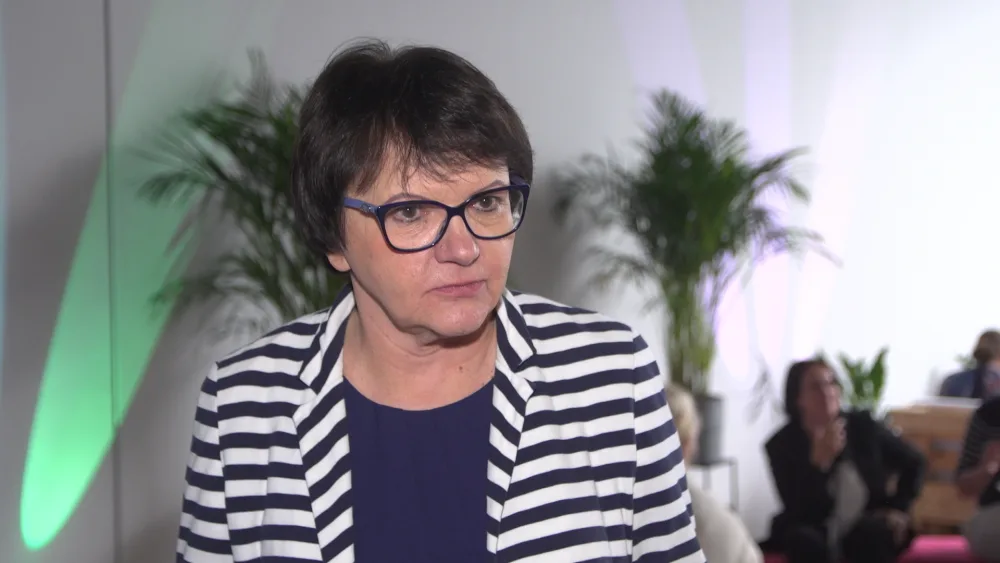Polish students perform well in international tests like PISA and TIMSS, which measure mathematical and scientific proficiency, as well as reading comprehension levels, compared to their international peers. However, their sense of well-being at school and their level of identification with the school community are very low. The level of well-being among teachers is also poor. As a result, the average age in this profession is increasing, and the risk of a generational gap is becoming greater – particularly since half of young teachers, as studies conducted in Warsaw suggest, are considering changing their profession.
“School is made up of teachers, students, and parents, as well as local government or local community and graduates. We thus create a community that must and wants to cooperate because there is one common goal – to support the development of children and young people, to reveal their potential in a safe environment that ensures well-being. There is also another very important element – the well-being of teachers. This, combined with the well-being of students, also greatly determines the well-being of the family,” explains Professor Małgorzata Żytko from the Faculty of Pedagogy of the University of Warsaw.
Despite Polish students achieving very good results in mathematical and scientific knowledge, and reading comprehension compared to other countries, studies show that they do not feel comfortable in school and do not identify well with the school environment. The strength of students’ ties to school was examined in the international PISA 2022 survey, in which they were asked about their feeling of alienation, being part of school, making acquaintances, awkwardness and maladjustment, perceived liking by other students, and loneliness. At the top of the ranking were Albania, Japan and Norway (0.23–0.25). Poland was towards the bottom of this ranking, with an identical result as Macau, slightly outperforming Jamaica and Thailand, the Philippines, Hong Kong, Cambodia, and Brunei.
Prof. Żytko points out, “This well-being is a category that we need to work on. International studies, like PISA for example, show that Polish students rank very low in some categories that define this well-being. For example, identification with their school and the ability to speak about belonging to a certain community.
Moreover, Polish teachers in the PIRLS survey from 2021 ranked last in terms of job satisfaction, and feeling of appreciation and recognition. If we look at more than 50 surveyed countries, on average, 61% of students had teachers with a high level of job satisfaction. In Poland, only 27% of teachers reported feeling this way, placing the country last.
Teachers were also asked about the extent to which certain issues discourage them from participating in professional development. In Poland, 63% of students have teachers who stated that an excess of obligations and lack of time greatly discourages them from participating in professional development, while the average in all countries was 45%.
“The mental and physical well-being is an extremely important factor in this profession, and teachers do not have the support they could have. The work of a teacher is work with young people, who come with various types of problems, and we support them,” explains the expert from the Faculty of Pedagogy of the University of Warsaw.
Various international studies show that job satisfaction among teachers reduces the risk of professional burnout and leaving the profession, positively influences their motivation in the profession, and their engagement in working with students. However, data shows that only about half of the young teachers in Warsaw are planning to continue working in schools, while others are considering a change in their profession.
The teaching staff surveyed in the PIRLS 2021 are typically people with vast professional experience, who, compared to teachers from most other countries, have longer service (the average fourth grader in Poland is taught by a teacher with 22 years of experience). In 2021, a vast majority (about 82%) of students were taught by teachers aged at least 40 years. The data also show that few young people choose a career as a teacher.
“Young people are certainly looking for work, which will have a greater value associated with mental peace, well-being, which is expressed in social recognition and better remuneration. The number of candidates for the profession is decreasing. Teachers demand exactly such psychological support. We may have fewer candidates, but those who choose this profession will be people who really want and know what it looks like, have motivation and passion, and we will be able to prepare such staff very well. Now, education relies on experienced teachers, and there is a potential risk of a certain generation gap, which we must try to fill,” summarizes Professor Żytko.
